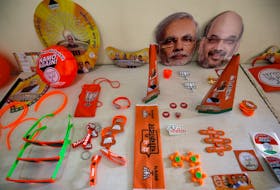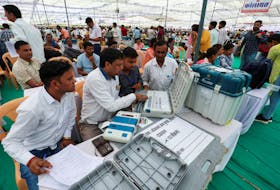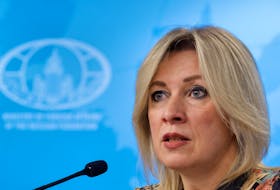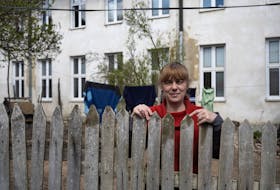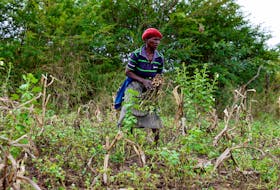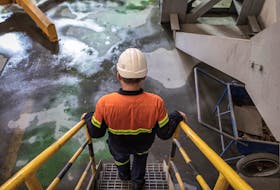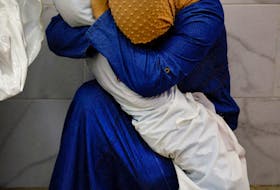The Canadian Forces’ mission to Latvia has been dogged with complaints of harassment and unprofessional behaviour, prompting the military to send an investigator to the country to get to the bottom of the problems.
The investigation, launched last year, focused on the behaviour of staff in the civil-military co-operation or J9 section of Canada’s Task Force Latvia and was the result of a complaint alleging harassment and unprofessional conduct.
The probe discovered that some staff openly mocked the senior leadership in Canada, circulated negative cartoons about the military’s gender advisor assigned to the mission, and conducted a “whisper campaign” against an incoming commanding officer.
There was a “culture of withholding information” and “members of the J9 section were habituated to unprofessional comments in the presence of junior officers and NCMs (non-commissioned members),” according to a March 2018 report by Lt. Col. Jeremy Fountain, who was sent to Latvia to investigate and interview staff members. Postmedia obtained the report under the Access to Information Act.
The Canadian Forces’ mission in Latvia is perhaps its highest-profile current deployment. Canada leads the NATO Enhanced Forward Presence Battle Group there, part of the alliance’s efforts to reassure its eastern members in the wake of Russia’s 2014 annexation of Crimea and Moscow’s support for separatists fighting Ukraine’s military.
Through his interviews, Fountain determined the mission’s civil-military co-operation section had split into two distinct groups at odds with each other. There were also efforts made within the section to freeze out the Canadian Joint Operations Command in Ottawa, the organization which was supposed to be overseeing the mission. Those efforts included J9 personnel blocking CJOC’s requests for information and section staff openly mocking CJOC orders, adding comments like “bullshit” and “highly false” on documents from CJOC commanders.
Fountain’s report also highlighted what he called “systemic cultural issues” within Canada’s Latvian mission, which saw some military personnel treated one way and others another.
“The negative effect on morale of having multiple classes of CAF personnel working in close proximity with some receiving benefits, tax relief and eligible for (medals) and others not,” the report said.
Also listed as morale problems for the task force were inequitable policies on alcohol, the privilege for only some military personnel of being permitted to travel outside their base, and a lack of “administrative deployment support” for reservists. Overall, there were a large number of complaints from military personnel despite the acknowledgement that their deployment in Latvia was not physically arduous, the report noted.
“The prolonged existence of unprofessional behaviour and the inequitable policies on restrictions and deployment status of CAF personnel have degraded morale within the J9 section and TFL,” Fountain wrote.
The report recommended that measures be taken to ensure “normalization of professional behaviour” and to improve communications with CJOC.
In an email to Postmedia, Canadian Forces spokeswoman Capt. Leah Campbell said that “details of the report cannot be elaborated further at this time as some aspects are still under investigation.”
“Immediately after these behaviours were reported to the Commander of Task Force Latvia, the Canadian Armed Forces began to investigate them, and immediate steps were taken to correct the situation through administrative measures and personnel re-assignment,” she added.
The Canadian-led NATO enhanced Forward Presence battlegroup Latvia was stood up during a ceremony at Camp Adazi, Latvia on June 19, 2017. In July 2018 Prime Minister Justin Trudeau visited Latvia to announce the government was not only extending the mission but expanding it. Canadian troops will stay in Latvia until March 2023 and the number of military personnel would be boosted from 455 to 540.
Trudeau said the Canadian military is in Latvia to send a message to Russian leader Vladimir Putin. “We certainly hope that the message is passed clearly to President Putin that his actions in destabilizing and disregarding the international rules-based order that has been successfully underpinned by NATO amongst others over the past 75 years or so is extremely important,” said Trudeau.
• Email: [email protected] | Twitter: davidpugliese
Copyright Postmedia Network Inc., 2019

